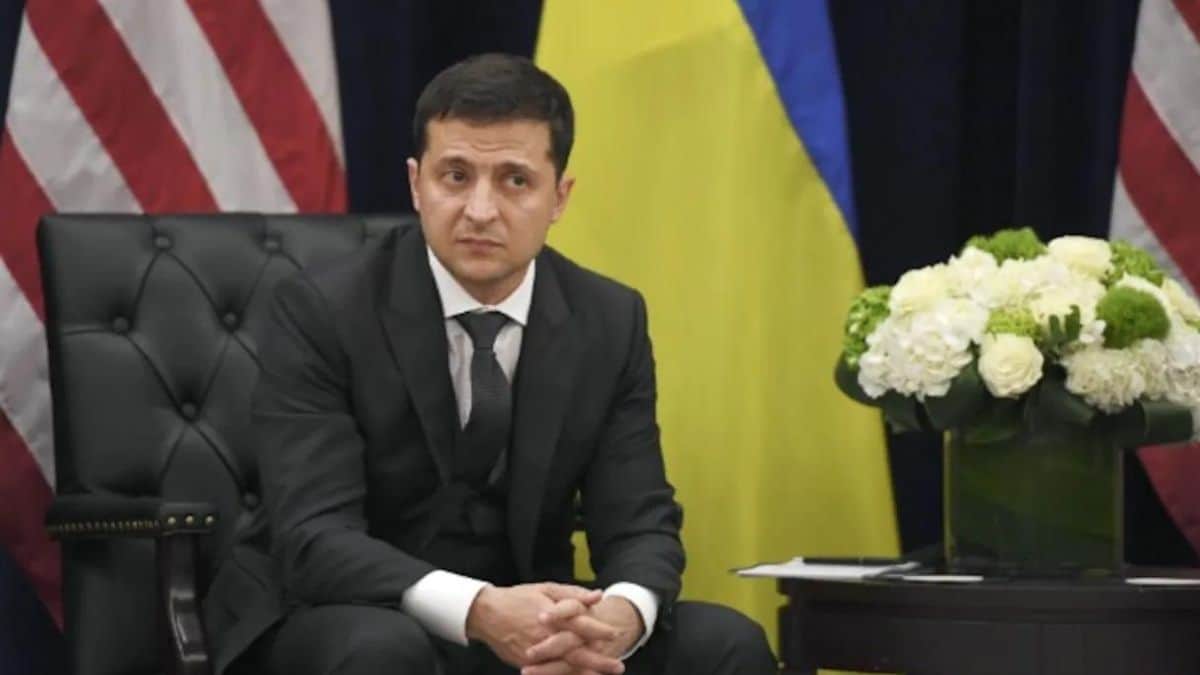Is Ukraine going to Face the same fate as Pakistan did from the USA in the Indo-Pak war of 1971?

After a pre-dawn TV broadcast in which Russian President Vladimir Putin urged that Ukraine’s military lay down its arms, the invasion by land, air, and sea commenced.
Ukrainian civilians and military, as well as Russian troops, were among the first casualties reported.
Ukraine’s president stated that his country “won’t give up its independence.”
President Volodymyr Zelensky tweeted, “Russia has gone on a path of evil, but Ukraine is defending itself.”
Ukraine has imposed martial law and cut ties with Russia. Weapons will be distributed to everyone who requests them, according to the document.
Warning sirens blared in Kyiv, Ukraine’s capital and home to over three million people, as traffic waited to exit the city and masses sought refuge in metro stations. “We don’t know what we should do now,” Svetlana, one of the women, told the BBC. “We’re currently headed to a safe spot, and we’re hoping to get out safely.”
Mark, a 27-year-old sales professional, stated that he was prepared to fight if called upon. “We don’t have any other options,” he explained.
Several neighbouring nations have started making plans to accept a substantial number of refugees. More than 4,000 individuals have crossed the border from Ukraine, according to Moldova.
Now we come to this question that will Ukraine going to Face the same fate as Pakistan did from the USA in the Indo-Pak war of 1971?
The Indo-Pakistani War of 1971 was a military conflict between India and Pakistan that lasted from 3 December 1971 to the fall of Dacca on 16 December 1971 in East Pakistan during the Bangladesh Liberation War.
After the East-Pakistan war, in which East Pakistan effectively seceded with India’s help, Pakistan severed its partnership with the US in 1971–72. The prospect of US economic aid played a key role in the formation of these agreements.
In the context of the 1971 India-Pakistan war, the storey of India’s diplomacy had two elements. On a bilateral level, India worked primarily with the four great powers (France, the United Kingdom, the Soviet Union, and the United States) as part of the larger international community to persuade Pakistan to reach a “political settlement” in East Pakistan and alleviate the burden of 10 million refugees in India who were displaced by Pakistan’s genocidal crackdown (Operation Searchlight) beginning on March 25, 1971.
From December 4, 1971, India worked with three great powers (France, the United Kingdom, and the Soviet Union) to persuade the United Nations Security Council (UNSC) to include such a political settlement in any decision calling for a ceasefire in India’s military campaign launched in response to Pakistan’s declaration of war on India.
These two elements culminated on December 21, 1971, when the United Nations Security Council passed Resolution 307, which removed the “situation on the India/Pakistan subcontinent” from the UNSC’s agenda till now.
Diplomacy prior to the start of a conflict
General Yahya Khan, Pakistan’s military dictator, rejected the results of the December 1970 parliamentary elections in Pakistan, which saw Sheikh Mujibur Rahman’s Awami League party win 167 of the 313 seats in the combined Pakistan assembly. Instead, Pakistan began a reign of terror and genocide with the launch of ‘Operation Searchlight’ on March 25, 1971, which lasted until the start of the battle in December 1971. With a vigorous diplomatic and military campaign for an independent Bangladesh, India’s original goal of supporting democracy in Pakistan was significantly changed.
The USSR was confronted with two big international issues in 1971. It was immersed in an ideological war with communist China, which was exacerbated by brutal border battles between Soviet and Chinese soldiers near the Ussuri River in March 1969. It was advancing on efforts to normalise relations with the United States by preparing to welcome the first visit by a US President to Moscow since World War II ended.
This diplomatic storey of the 1971 India-Pakistan war has four outcomes. First, it laid the groundwork for India and Pakistan to discuss and agree on a legal treaty (the Simla Agreement of July 2, 1972) between January and July 1971, committing both countries to bilaterally address issues, including the Kashmir issue. This treaty superseded prior UN judgments on India-Pakistan issues because it was filed under Article 102 of the UN Charter.
Second, it foreshadowed the admission of an independent Bangladesh to the United Nations (after the defeat of communist China’s first veto on Bangladesh’s admission on August 25, 1972), giving an international framework for the new country’s orientation and objectives.
Third, the UN’s diplomatic responses to the war revealed the UN’s hollowness in upholding the legal responsibilities of the 1948 Genocide Convention, which was adopted to avoid mass atrocity crimes after WWII. Following it, the UN failed to stop genocides in Cambodia (1975-1979), Srebrenica (1992), Rwanda (1994), and Iraq’s Yazidi genocide (2014). Fourth, the establishment of Bangladesh fundamentally contradicted the United Kingdom’s 1947 “two-nation theory,” which was used to split and partition British India, demonstrating that religion could not be the main determinant of nationhood in South Asia.

